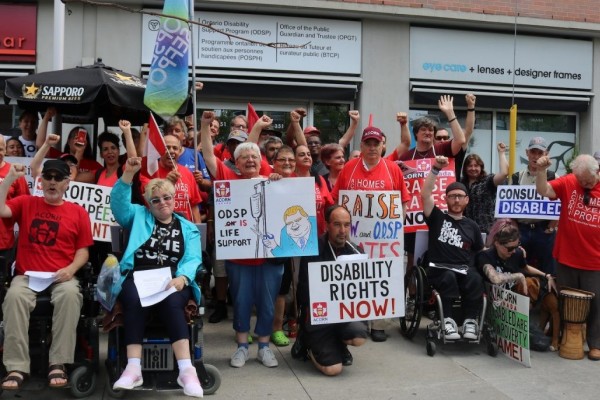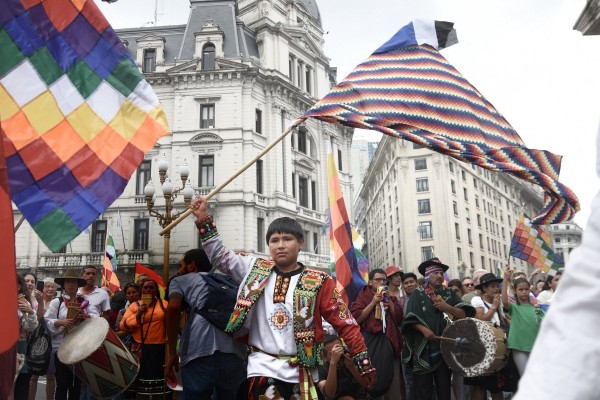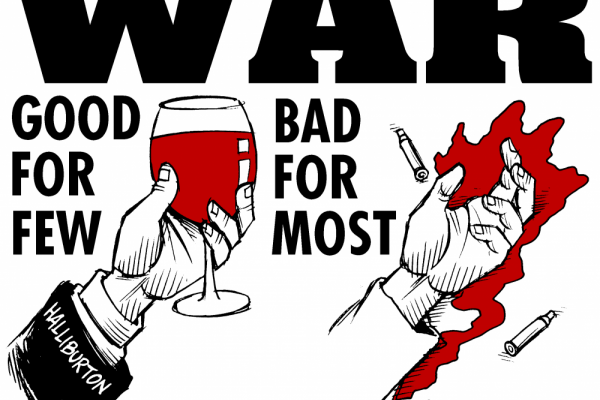Don’t be fooled by Canada’s recent pro-Palestine UN vote

A man waves a Palestinian flag during a protest in the Jordan Valley, West Bank. Photo from Pixabay.
Last week, Canada stood with the majority and voted in favour of a United Nations resolution in support of Palestinian self-determination. This marks the second consecutive year that Canada has voted in the affirmative on a pro-Palestine UN vote.
On the face of it, this might look encouraging. Canada typically votes alongside Israel on such resolutions, but refusing to do so for a second straight year has understandably piqued the curiosity of many observers.
The resolution, which passed 163 to five, with 10 abstentions, emphasizes “the right of the Palestinian people to self-determination, including the right to their independent State of Palestine.” It also stresses the “urgency of achieving without delay an end to the Israeli occupation that began in 1967 and a just, lasting and comprehensive peace settlement between the Palestinian and Israeli sides,” based on a two-state solution.
Until 2019, Canada had last voted in support of Palestinian self-determination in 2005. Indeed, this is a relatively recent phenomenon. Since 1969, Canada was already voting against resolutions supporting Palestinian statehood.
Canada’s first negative vote on Palestine happened in 1949 on a resolution to unify Jerusalem and establish the city as a corpus separatum, placing it under UN sovereignty as an international city. That same year, we abstained on a resolution regarding the establishment of the United Nations Relief and Works Agency for Palestine Refugees in the Near East (UNRWA).
After June 1967, when Security Council Resolution 242 declared the “inadmissibility of acquiring land through the use of force” in the aftermath of the Six-Day War, Canada voted consistently for decades against UN resolutions supporting the rights of Palestinians.
Last year’s vote was therefore seen by many as a fig leaf to the international community to entice UN member states to vote in favour of Canada’s bid for a much-coveted seat on the UN Security Council (UNSC).
Due to a confluence of factors—potentially including Trudeau’s support for unelected Latin American leaders, our role in arming the Saudi war machine, and Ottawa’s refusal to sign the UN Nuclear Ban Treaty—Canada went on to lose its high-profile bid for a UNSC seat. A total of 128 votes were needed to secure a two-thirds majority. Norway received 130 votes while Ireland got 128. Canada collected just 108 votes.
As I have argued elsewhere, Canada’s anti-Palestinian voting record at the UN has played a major role in our declining reputation in the world. It also negatively impacted the Trudeau government’s quest for a greater presence at the highest level of international relations.
In fact, in the lead up to the UNSC vote, then foreign affairs minister Chrystia Freeland declared Canada would act as an “asset for Israel” if it secured the seat.
Former Ontario NDP leader Stephen Lewis also chimed in, claiming that Canada’s voting record on Palestine had “nothing to do with [our] loss of the Security Council seat.”
Pro-Palestinian protester stands close to the United States embassy in Grosvenor Square, London with a placard reading “Justice for Palestine,” November 4, 2017. Photo by Alisdare Hickson/Flickr.
An analysis conducted earlier this year by Just Peace Advocates showed that Canada has voted yes 87 times on resolutions related to Palestinian rights since the turn of the twenty-first century, but since 2011, it had not supported any pro-Palestine resolutions until the ‘orphan’ vote of 2019.
Since being elected five years ago, the Trudeau Liberals have not deviated from the Harper Conservative approach of voting against most Palestine resolutions, with the notable recent exception of the affirmative votes in 2019 and now in 2020.
The timing of this most recent vote, however, is nonetheless complicated by the prime minister’s November 23 appointment of Irwin Cotler as Canada’s Special Envoy on Preserving Holocaust Remembrance and Combatting Antisemitism.
This decision is troubling, not least because it was made just days after Canada stood on the right side of a UN Palestine resolution.
Cotler has been described as an apologist for Israel’s brutal apartheid regime. In 2000, when Canada voted in favour of a UNSC resolution calling on Israel to respect the rights of Palestinian protesters, Cotler attacked then foreign minister, Lloyd Axworthy, as well as his own party by calling the resolution “discriminatory.”
Cotler is a consistent defender of Israel and has a track record of aggressively criticizing ‘enemy’ states while largely ignoring rights violations committed by Canada and the United States. He has also served on the advisory board of United Against Nuclear Iran, a neo-conservative lobbying organization that pushed to undermine the Iran nuclear deal (otherwise known as the Joint Comprehensive Plan of Action).
While Cotler’s work as legal counsel to prisoners of conscience should be recognized, his appointment to this post serves to weaken whatever credibility Canada may have gained with its recent UN votes. The appointment also gives added legitimacy to the widely-criticized definition of antisemitism put forward by the International Holocaust Remembrance Alliance, one that conflates legitimate criticism of the Israeli government and its military as anti-Semitic.
According to a statement released by Independent Jewish Voices Canada:
In appointing Irwin Cotler to this position, the Canadian government further aligns itself with the highly controversial IHRA definition of antisemitism, which is being weaponized to portray supporters of Palestinian human rights as antisemitic, and to shield Israel from legitimate criticism. Unfortunately, the IHRA definition already has a long track record of suppressing Palestinian voices and Palestinian human rights advocates around the world.
Despite Canada’s (very) recent voting record on Palestine at the UN, the prime minister’s appointment of Cotler shows that this apparent good will is just window dressing.
If Canada is serious about holding Israel to account for its ongoing colonization of Palestine, it must do more than put forward symbolic votes at the UN and install figures like Cotler in positions of influence.
Only when the Trudeau government starts listening to Palestinian voices and rejects the leading proponents of the “new antisemitism” thesis which seeks to label criticism of Israel as a form of anti-Jewish discrimination, will we be capable of moving forward together.
Karen Rodman is the director of Just Peace Advocates, an international human rights organization based in Canada. The organization recently completed an analysis of Canada’s voting record at the United Nations since 1947.










